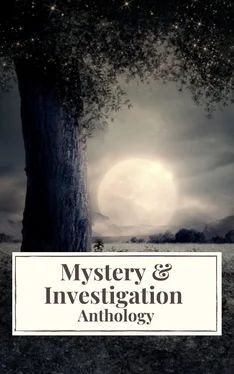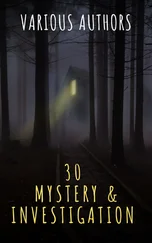"They were annoying Mr. Luker," I answered, "by loitering about the house at Lambeth."
"Did you read the report of Mr. Luker's application to the magistrate?"
"Yes."
"In the course of his statement he referred, if you remember, to a foreign workman in his employment, whom he had just dismissed on suspicion of attempted theft, and whom he also distrusted as possibly acting in collusion with the Indians who had annoyed him. The inference is pretty plain, Mr. Bruff, as to who wrote that letter which puzzled you just now, and as to which of Mr. Luker's Oriental treasures the workman had attempted to steal."
The inference (as I hastened to acknowledge) was too plain to need being pointed out. I had never doubted that the Moonstone had found its way into Mr. Luker's hands, at the time Mr. Murthwaite alluded to. My only question had been, How had the Indians discovered the circumstance? This question (the most difficult to deal with of all, as I had thought) had now received its answer, like the rest. Lawyer as I was, I began to feel that I might trust Mr. Murthwaite to lead me blindfold through the last windings of the labyrinth, along which he had guided me thus far. I paid him the compliment of telling him this, and found my little concession very graciously received.
"You shall give me a piece of information in your turn before we go on," he said. "Somebody must have taken the Moonstone from Yorkshire to London. And somebody must have raised money on it, or it would never have been in Mr. Luker's possession. Has there been any discovery made of who that person was?"
"None that I know of."
"There was a story (was there not?) about Mr. Godfrey Ablewhite. I am told he is an eminent philanthropist—which is decidedly against him, to begin with."
I heartily agreed in this with Mr. Murthwaite. At the same time, I felt bound to inform him (without, it is needless to say, mentioning Miss Verinder's name) that Mr. Godfrey Ablewhite had been cleared of all suspicion, on evidence which I could answer for as entirely beyond dispute.
"Very well," said Mr. Murthwaite, quietly, "let us leave it to time to clear the matter up. In the meanwhile, Mr. Bruff, we must get back again to the Indians, on your account. Their journey to London simply ended in their becoming the victims of another defeat. The loss of their second chance of seizing the Diamond is mainly attributable, as I think, to the cunning and foresight of Mr. Luker—who doesn't stand at the top of the prosperous and ancient profession of usury for nothing! By the prompt dismissal of the man in his employment, he deprived the Indians of the assistance which their confederate would have rendered them in getting into the house. By the prompt transport of the Moonstone to his banker's, he took the conspirators by surprise before they were prepared with a new plan for robbing him. How the Indians, in this latter case, suspected what he had done, and how they contrived to possess themselves of his banker's receipt, are events too recent to need dwelling on. Let it be enough to say that they know the Moonstone to be once more out of their reach; deposited (under the general description of 'a valuable of great price') in a banker's strong room. Now, Mr. Bruff, what is their third chance of seizing the Diamond? and when will it come?"
As the question passed his lips, I penetrated the motive of the Indian's visit to my office at last!
"I see it!" I exclaimed. "The Indians take it for granted, as we do, that the Moonstone has been pledged; and they want to be certainly informed of the earliest period at which the pledge can be redeemed—because that will be the earliest period at which the Diamond can be removed from the safe keeping of the bank!"
"I told you you would find it out for yourself, Mr. Bruff, if I only gave you a fair chance. In a year from the time when the Moonstone was pledged, the Indians will be on the watch for their third chance. Mr. Luker's own lips have told them how long they will have to wait, and your respectable authority has satisfied them that Mr. Luker has spoken the truth. When do we suppose, at a rough guess, that the Diamond found its way into the money-lender's hands?"
"Towards the end of last June," I answered, "as well as I can reckon it."
"And we are now in the year 'forty-eight. Very good. If the unknown person who has pledged the Moonstone can redeem it in a year, the jewel will be in that person's possession again at the end of June, 'forty-nine. I shall be thousands of miles from England and English news at that date. But it may be worth YOUR while to take a note of it, and to arrange to be in London at the time."
"You think something serious will happen?" I said.
"I think I shall be safer," he answered, "among the fiercest fanatics of Central Asia than I should be if I crossed the door of the bank with the Moonstone in my pocket. The Indians have been defeated twice running, Mr. Bruff. It's my firm belief that they won't be defeated a third time."
Those were the last words he said on the subject. The coffee came in; the guests rose, and dispersed themselves about the room; and we joined the ladies of the dinner-party upstairs.
I made a note of the date, and it may not be amiss if I close my narrative by repeating that note here:
JUNE, 'FORTY-NINE. EXPECT NEWS OF THE INDIANS, TOWARDS THE END OF THE MONTH.
And that done, I hand the pen, which I have now no further claim to use, to the writer who follows me next.
Part 4 Third Narrative, Contributed by FRANKLIN BLAKE
In the spring of the year eighteen hundred and forty-nine I was wandering in the East, and had then recently altered the travelling plans which I had laid out some months before, and which I had communicated to my lawyer and my banker in London.
This change made it necessary for me to send one of my servants to obtain my letters and remittances from the English consul in a certain city, which was no longer included as one of my resting-places in my new travelling scheme. The man was to join me again at an appointed place and time. An accident, for which he was not responsible, delayed him on his errand. For a week I and my people waited, encamped on the borders of a desert. At the end of that time the missing man made his appearance, with the money and the letters, at the entrance of my tent.
"I am afraid I bring you bad news, sir," he said, and pointed to one of the letters, which had a mourning border round it, and the address on which was in the handwriting of Mr. Bruff.
I know nothing, in a case of this kind, so unendurable as suspense. The letter with the mourning border was the letter that I opened first.
It informed me that my father was dead, and that I was heir to his great fortune. The wealth which had thus fallen into my hands brought its responsibilities with it, and Mr. Bruff entreated me to lose no time in returning to England.
By daybreak the next morning, I was on my way back to my own country.
The picture presented of me, by my old friend Betteredge, at the time of my departure from England, is (as I think) a little overdrawn. He has, in his own quaint way, interpreted seriously one of his young mistress's many satirical references to my foreign education; and has persuaded himself that he actually saw those French, German, and Italian sides to my character, which my lively cousin only professed to discover in jest, and which never had any real existence, except in our good Betteredge's own brain. But, barring this drawback, I am bound to own that he has stated no more than the truth in representing me as wounded to the heart by Rachel's treatment, and as leaving England in the first keenness of suffering caused by the bitterest disappointment of my life.
I went abroad, resolved—if change and absence could help me—to forget her. It is, I am persuaded, no true view of human nature which denies that change and absence DO help a man under these circumstances; they force his attention away from the exclusive contemplation of his own sorrow. I never forgot her; but the pang of remembrance lost its worst bitterness, little by little, as time, distance, and novelty interposed themselves more and more effectually between Rachel and me.
Читать дальше












